-
Highlighting the Cost Saving Benefits of Using Waste Analytics
Did you know that something called waste analytics could improve the efficiency of your company’s waste management near Atlanta? Whether you want to save money on trash pick-ups, find ways to reduce waste, or enhance your business’ green image, waste analytics can help.
Waste analytics refers to data about waste generation, and this information can help you understand how your company impacts the environment and what your options are for making improvements. For example, by having concrete information about how much waste is produced, you will be in a better position to determine areas for improvement. Also, knowing what type of waste your business generates can help you decide if you would benefit from a commercial recycling program and, if so, what kind. Finally, by having a better idea of how much waste your company generates in a specific period, you can avoid scheduling trash pick-ups more frequently than you need them. For these reasons, there is a good chance that your business could benefit from waste analytics.
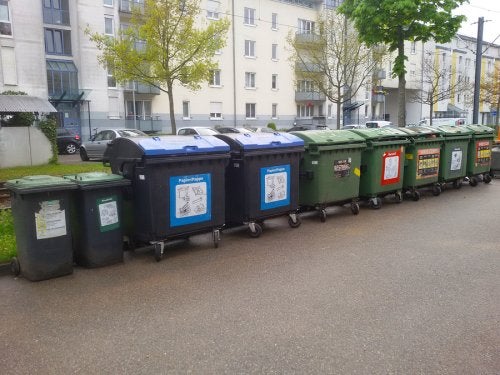
-
Taking a Closer Look at Non-Ferrous Material Recycling
Metal recycling benefits the environment and can also help your company save money. If you’re a business owner interested in taking advantage of industrial recycling in Atlanta , then keep reading to learn some of the facts you should know about non-ferrous metal recycling.
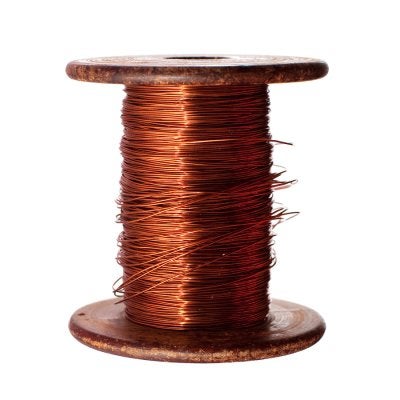
The Characteristics of Non-Ferrous Metals
Non-ferrous refers to any metals other than ferrous metals. Ferrous metals are metals and metal alloys that contain iron, for example, carbon steel and cast iron. Common non-ferrous metals include copper, zinc, tin, aluminum, nickel, and lead. However, precious metals like gold and silver are also non-ferrous. There is a broad range of consumer and commercial goods that contain recyclable non-ferrous metals, such as soda cans, electronic circuitry, car radiators, and airplane components. Non-ferrous metals are more malleable and resistant to corrosion and rust than ferrous ones, and they are also more lightweight, which makes them good options for products that require strength but for which weight is a concern. Lastly, non-ferrous metals are non-magnetic, which is why they are used for wiring and electronic circuitry.
The Recycling of Non-Ferrous Metals
Non-ferrous metals are particularly valuable when it comes to recycling because these materials do not break down or lose their properties during the process. These characteristics mean that non-ferrous metals can be recycled infinitely without losing their physical or chemical attributes. Although non-ferrous metals make up a relatively small portion of all metal that is recycled in the U.S., what is recycled accounts for a significant amount of metal recycling profits. Non-ferrous metal materials that are collected for recycling are transported to industrial consumers, such as refiners, foundries, and smelters, providing these entities with affordable and eco-friendly access to valuable non-ferrous scrap. These industrial consumers process the scrap metal, which is an energy-efficient alternative to processing raw ore, to create new products and begin the material’s life cycle anew. If your business produces non-ferrous scrap metal, then you might benefit from metal recycling services.
-
Could Waste Be the Newest Source of Energy?
If you’re like many people who are concerned about cutting back on waste near Atlanta , then you may be interested in learning what one city is doing to make the most of the trash it generates. Watch this video to get an introduction to something called waste-to-energy.
The local government in Alexandria, Virginia partnered with an energy corporation to power more than 20,000 homes with a process called waste-to-energy. Despite recycling efforts, there is still a lot of waste that ends up in dumpsters. This process allows the area to burn their garbage for energy, rather than dump it in a landfill. Through innovation, they have stayed ahead of EPA regulations over the years, for example with new filtration technology for their furnaces, making this waste management process a promising one.
-
Dealing with Temporary Waste from a Remodeling Project
When you are planning on remodeling your home, you may be faced with the challenging task of determining how to dispose of your excess demolition waste and construction materials. A dumpster rental near Atlanta may provide you with the ideal solution during your renovation. Since your remodeling project will only produce a temporary volume of waste, you can rent a dumpster for the timeframe of your project.
Dumpsters are perfectly suited for disposing of renovation waste. Depending on the scope of your project, you can rent a compact dumpster or a large, roll-off container. Your dumpster will be delivered directly to your site, so you will not have to worry about transporting waste from your property. At the end of your project, your team of waste management professionals will be there to pick up your dumpster rental and haul it to the appropriate processing facility. If you are getting ready for an upcoming renovation, now is a great time to receive a quote for dumpster rental prices.
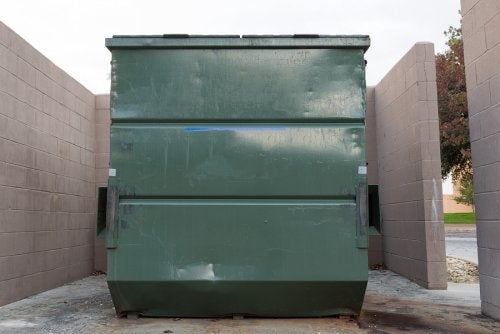
-
Taking a Closer Look at Ferrous Waste Recycling
Ferrous waste is a term that is used to describe any type of scrap that is primarily composed of iron or steel. If your business produces large amounts of ferrous waste, consider bringing your items to a facility that offers scrap metal recycling in Atlanta . Metal recycling can be used to repurpose ferrous waste and create brand new items. Your recycling center can even help you to create a waste management plan that provides you with scheduled pickups for your bulk ferrous waste. To help you implement a recycling plan for your business, read on to take a closer look at what you need to know about ferrous waste recycling.
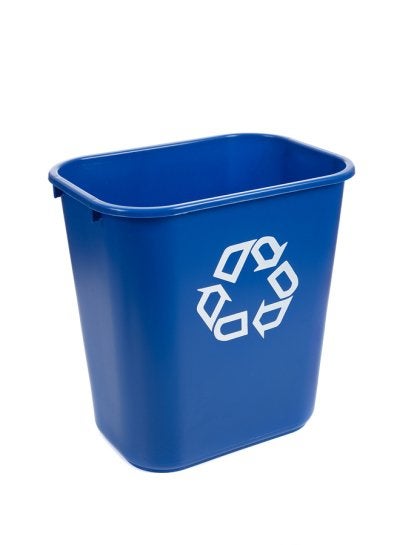
Ferrous waste comes from a variety of sources.
Ferrous waste can be obtained from many of the most common objects and items that we use every day. Among the most common sources of ferrous scrap metals include old automobiles. Along with junk cars, ferrous waste also comes from household appliances, steel structural beams, and old transportation equipment.
Ferrous waste is among the most commonly recycled materials.
In fact, ferrous waste makes up the bulk of all of the various types of materials that are recycled in the United States. In a single year, ferrous waste recycling facilities process up to 72 million metric tons of iron and steel. Due to its renewable and reusable properties, ferrous scrap is a valuable part of the recycling industry.
Ferrous waste must be processed at a dedicated facility.
If you have extra scrap metal laying around your home or commercial property, you will need to bring your items to a facility that has the equipment required to process these types of materials. In order to process ferrous waste, a facility needs to put the raw materials into a powerful shredder. Once the iron or steel has been shredded, it can be melted down in order to create brand new products. Your recycling facility may also sort different types of ferrous waste into categories before it is shredded.
-
Steps Your Business Can Take to Boost Your Recycling Habits
When your business creates a new recycling protocol, it can take some time before all of your workers are on board with the plan. In order to recycle effectively, it is crucial for every member of your team to implement recycling practices, throughout the workday. With services from a company that offers waste disposal and recycling serving Atlanta, you will be able to set up a streamlined recycling program that integrates smoothly with the workflow of your business. If you want to get your recycling plan up and running, here are some steps that your business can take to boost your recycling habits.
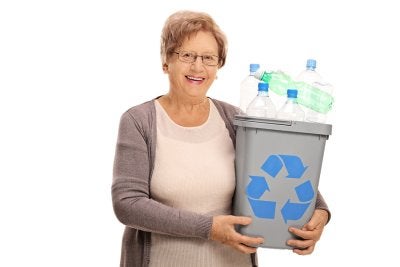
Place Recycling Bins In Strategic Areas
If your workers are unsure of the location of your recycling bins, they will be much less likely to recycle their waste, throughout the day. As you are setting up your new waste management plan, take the time to determine strategic recycling locations, throughout your commercial property. When your bins are easy to find and access, they will promote proper recycling habits among all your workers.
Create Clear Directional Signs
The recycling process can be confusing for even the most seasoned of employees. To reduce uncertainty about what can and cannot be recycled in each bin, create bold signage that provides clear directions about how to recycle correctly. These signs should be placed throughout your work environment. After you have put up your signs, you may find that more of your employees are ready to start recycling.
Designate a Special Area for Metal and Electronic Recyclables
While recycling paper and plastic can be done through the use of individual recycling bins, larger items may need to be placed in a designated area. To ensure that your workers are able to recycle their old electronics and large metal items, create a designated space that can house these materials. A waste management company can schedule monthly pickups so that you do not have to worry about bringing these items to the recycling center.
-
Why Recycling Is Smart for Small Businesses
When you are looking for an effective way to reduce costs for your small business, consider creating a new waste management plan that includes recycling. By sending your disposables to the recycling center, rather than the dump, you can save money while also conserving your company’s resources. If you are planning on setting up recycling for your business in Atlanta , contact a company that offers recycling bins and trash pickup services. Here is an overview of three reasons why every small business should recycle.
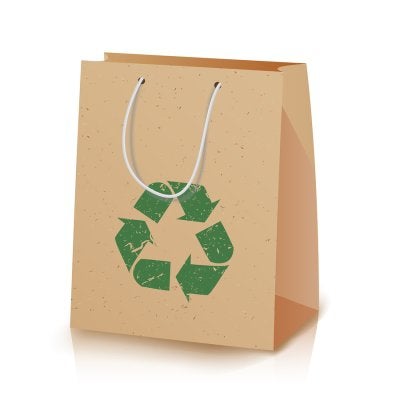
Eliminate Unnecessary Waste
By implementing a recycling plan for your small business, you can start to focus your efforts on conserving the materials and supplies that are used for all of your daily operations. Once you start recycling, you may think twice before you throw out your printer paper or other supplies. Recycling will help to create heightened awareness about how waste prevention and material conservation can benefit every aspect of your business. As you are implementing your new recycling program, make sure to educate your employees about the importance of waste management.
Encourage the Use of Recycled Materials
From printer paper to shipping boxes and more, there are many different types of office supplies that can be crafted from recycled materials. When you recycle, you may be more likely to purchase new office supplies and items that have been produced from recycled goods. Purchasing recycled office supplies can help you to cut down on costs, and will also improve your overall waste management efforts.
Help to Protect the Environment
Along with saving you money and eliminating waste, recycling is also an important step towards helping to protect the environment. When you recycle your paper and plastic goods, you will be doing your part to conserve natural resources and prevent harmful materials from entering sensitive ecosystems. You can also use your new recycling program as a marketing tool. By advertising your company as a green business, you may attract more customers who are interested in protecting the planet.
-
Spotlight on Our Equipment Maintenance Services
If your business uses waste management equipment, be sure to trust Southern Waste and Recycling for all of your maintenance and service needs. We proudly offer a range of services and repairs for balers, compacters, and other waste management tools. Whether you are in need of a dumpster in Atlanta, or you are seeking emergency repairs for your trash compactor, we will provide you with prompt and efficient services.
To ensure that your compactor or baler remains up and running for all of your daily operations, consider signing up for our preventative maintenance program. When you rely on our company for preventative repairs, you can rest assured that your waste management equipment will remain up and running at all times. In the event of an emergency, we will also be on call to provide you with immediate repairs. Our trash service company is committed to the satisfaction of our customers, and we will restore your equipment to functional condition as quickly as possible.
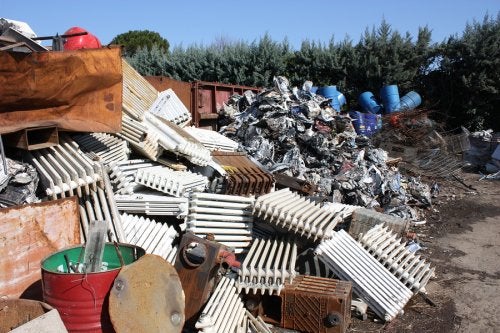
-
Spotlight on Hazardous Waste Regulations for Academic Laboratories
Scientific inquiry is a cornerstone of academic study at the undergraduate and graduate levels. As the operator of an academic laboratory, it is essential that you set up safe and sustainable waste management services for your facility. With services from a company that specializes in waste near Atlanta , you can schedule secure trash pickup services for the hazardous waste that is generated by your lab.
Since academic labs create unique and varied amounts of hazardous waste, they are provided with some flexibility around scheduling their hazardous waste pickups. Depending on the size of your facility, you may be designated as a large, small, or very small quantity generator. At any designation, a hazardous waste generator must create a hazardous waste management plan that follows EPA guidelines. These guidelines state that hazardous laboratory waste must be removed from the site at least once every six months. All hazardous waste management plans should be authorized by lab managers or other trained professionals.
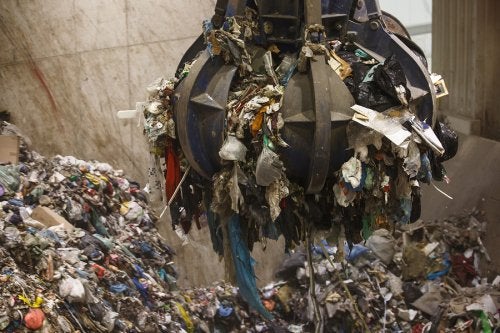
-
A Guide to Universal Waste
Proper waste management is very important for businesses that generate hazardous materials as a part of their routine operations. If your business discards batteries, pesticides, or products that contain mercury, you are obligated to participate in the universal waste program that has been created by the EPA. A company that offers waste disposal and junk removal in Atlanta will be able to help you create a safe processing plan for the hazardous waste that is created by your business. To help you comply with EPA standards, here is a brief guide to what you need to know about universal waste.
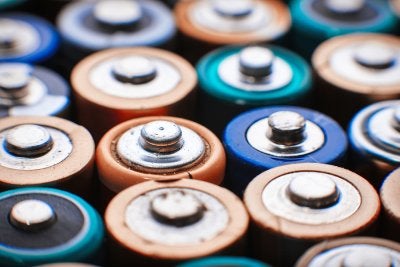
The Purpose of the Universal Waste Program
In recent decades, the EPA has recognized that certain types of hazardous waste are frequently discarded by many different types of businesses and industries. In order to streamline the collection process and keep hazardous materials out of landfills, the EPA created the universal waste program. This program regulates the processing of hazardous waste collection, and also helps companies with the proper disposal of potentially toxic and harmful materials.
The Types of Universal Waste
Universal waste falls into a few, distinctive categories. Batteries are among the most common types of universal waste that businesses toss out every day. All types of batteries are considered to be hazardous once they have been placed in the trash. Other categories of universal waste include pesticides, as well as equipment and lamps that contain traceable amounts of mercury. All of these items need to be safely handled by a designated waste processing facility.
The Categories of Universal Waste Participants
A company’s participation in the federal universal waste program will be dictated by the quantity of hazardous waste that it handles every day. Companies that produce small amounts of waste are categorized as small quantity handlers. Larger organizations and companies that generate high volumes of hazardous waste earn the designation of large quantity handlers. No matter your designation, a waste management company will help you safely process your universal waste products.
RECENT POSTS
categories
- Uncategorized
- Waste Management Atlanta
- Waste Disposal and Recycling
- Hazardous Waste Disposal
- Chemical waste removal
- solid waste removal
- R3 Program
- Sustainable Organizations
- Sustainable Waste Removal
- Commercial Waste Removal
- Materials Management Program
- Dumpster Rental
- Roll Off Dumpsters
- Construction Site Waste Removal
- Sustainability
- Recycling in Atlanta
- Industrial Recycling
- Industrial Waste Removal Services
- Southern Waste & Recycling
- Waste Removal Atlanta
- Waste Specialists
- Atlanta
- Infographic
- Front Load Dumpsters
- Rear Load Dumpsters
- Reusable Electronics
- Dump Truck Atlanta
- Recyclable Electronics
- Trash Compactors
- Recycling
- Recycling Program
- Office Recycling
- Metal Recycle
- Electronic Waste
